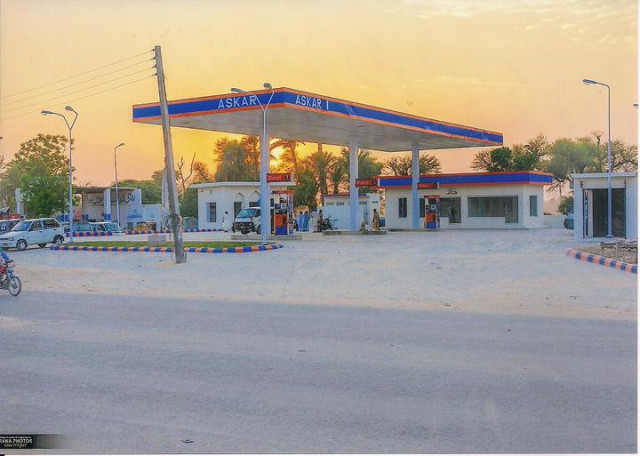How Askar became the sixth largest oil marketer
Company sold smuggled Iranian oil products at 390 outlets across the country

PHOTO: ASKAROIL.COM.PK
Earlier this year, when Shahbaz Khan Musakhel, a politician and businessman, attempted to set up a petrol pump in Sindh’s Matiari district, he was stopped by local authorities. He was told that the licence of Askar Oil Services, the company which had given him the franchise, was suspended.
As he dug deeper, he found that the company was not allowed to have dealers outside Punjab.
Market watch: Powered by oil, bourse marches north
Musakhel had not been the only one trapped into getting the franchise for between Rs500,000 and Rs800,000 per outlet.
The matter has since then reached parliament and the Senate’s Standing Committee on Petroleum. Revelations that have appeared are nothing less than extraordinary.
Askar, which markets petroleum products under the brand name of Askar-1, boasts having more than 390 retail outlets across the country, making it the sixth largest oil marketing company (OMC).
Oil dips as Saudi rules out intervention
Despite the number of outlets, no one seems to know where the company gets all the petrol and diesel from.
According to Oil Company Advisory Council (OCAC) - the industry association which represents OMCs and oil refineries - Askar does not import petroleum products. It does not buy from any of the local refineries either.
“They are selling smuggled Iranian products,” says Shahbaz Musakhel. “Once they take money for the franchise, they do not care what gets sold at the pump.”
Consumers start looking for more gas supplies than oil
The Oil and Gas Regulatory Authority (Ogra), which was grilled by the Senate’s Committee on Petroleum last week, says company’s licence has been suspended.
Meanwhile, Ogra Chairman Saeed Ahmed Khan told The Express Tribune that Askar was barred from operating in Sindh and Balochistan last year.
“Then in September this year we suspended its licence to operate in Punjab, where most of its outlets are located.”
The action was taken because of Askar’s reluctance to spend money on storage depots - a capital intensive proposition which has become a problem for other private OMCs as well.
He didn’t speculate about the fate of all retail outlets operating under the company’s brand name. He couldn’t comment on how exactly the 300-plus retail outlets had been given permission when even the regulator was not sure about their business practice.
Setting up a petrol pump is generally an expensive and cumbersome process. Dealers have to seek permission from multiple government agencies and go through safety audits by fire and explosive experts.
OMCs also push dealers to comply with minute detail vis-à-vis quality of material used in building underground tank.
Despite repeated attempts to contact Askar’s officials in Lahore, no one responded. Managing Director Shakeel Naseem could not be reached either.
Industry people say Askar depended on other marketing companies to source petroleum products. “They bought it against cash from other companies.”
It’s a win-win game for everyone: a midsize OMC would split the margin on sale of petrol and diesel with Askar to make the most of the economies of scale and Askar would gain access to the product.
Askar even bought petroleum products from Pakistan State Oil (PSO) under a three-year contract that ran until 2013.
“Ogra should have questioned about the source of their supplies a long time ago,” said an industry executive.
This case has also highlighted the loopholes in regulatory structure and the way dealers adulterate petroleum products.
After a gap of seven years, Pakistan started exporting condensate, a type of light crude oil, in 2014. And then from almost nothing, it exported 457,000 tons of it between June 2014 and July 2015.
“Where do you think most of it was used for all those years?” said an industry official. “Condensate can easily be mixed with petrol. It also comes at half the price of petrol. So you can imagine the incentive to cheat.”
While OMCs claim to have systems in place to check the quality of products sold at its franchises, the fact is that petrol pumps in rural areas routinely sell adulterated and smuggled products.
Published in The Express Tribune, October 29th, 2015.
Like Business on Facebook, follow @TribuneBiz on Twitter to stay informed and join in the conversation.


















COMMENTS (13)
Comments are moderated and generally will be posted if they are on-topic and not abusive.
For more information, please see our Comments FAQ